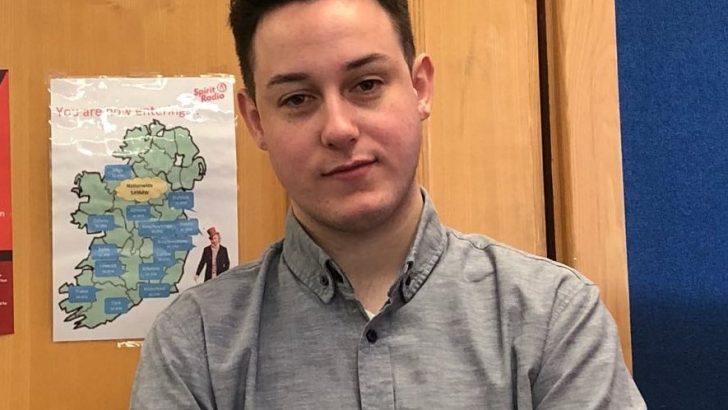Eighth Amendment
After the referendum, the challenge for us Catholics is how do we ensure that the next generation embraces what means so much to us, writes Larry Donnelly
The people have spoken, emphatically. While most of us who like to think we are in the political know saw the Eighth Amendment referendum campaign heading in a clear direction in the closing days, almost no one anticipated the comprehensive 66.4%-33.6% win for the pro-repeal side.
Much has been written and said already as to why this was the case. And there is something to the points made by the commentariat. There is also some debate now on what this means for the Catholic Church in Ireland. Some have contended that it signals, similar to the result in the referendum on same-sex marriage before it, the end of ‘Catholic Ireland’ – and would add the words ‘thankfully’ or ‘at last’ to their postscript. Others, noting the census figures revealing that 78% of the population still claim membership and referencing historic trends, opine that rumours of the Church’s demise are greatly exaggerated.
Regardless of one’s view on the question, the institutional Church in Ireland must consider its position. It is a pity that its public profile now revolves around conservative stances on profound and complex cultural matters, as opposed to its progressive and efficacious advocacy for people on society’s margins – here and around the world. If anything, the Church must do a better job of communicating this truth, so that it becomes more than just an oft-cited footnote to criticism from those who allege that it is out of touch with everyday life in 2018.
Rejection
No matter how the Church pivots in the wake of the rejection of the Eighth Amendment it was so central to enshrining – I actually do not expect a dramatic retreat from sight or any conscious attempt to reassert itself – it is vital that the compassion that is arguably the defining element of the extraordinary message of Jesus Christ be stressed at every turn. Nonetheless, the challenges confronting Irish Catholicism are daunting.
In the referendum campaign, broadly speaking, the Church did not play an active role, probably because the leadership did not believe that it would assist the ‘No’ side in the debate. The reaction to Bishop Kevin Doran’s interview on Seán O’Rourke’s radio programme on Monday, where he suggested that self-identifying Catholics who voted ‘Yes’ might go to Confession, indicates that this was a politically wise decision.
It was no surprise that those who are not Catholics and have little good to say about the Church attacked the bishop. It was striking, however, that numerous practising Catholics contacted RTÉ to say how disgusted they were by his comments. And in fairness to Bishop Doran, his statement was entirely consistent with Church teaching and with what we are called to believe about the sanctity of all human life from the moment of conception until natural death. May 25 demonstrates that lots of us either do not share this view or do not think we can impose it upon others.
This tacit endorsement of secularism from within the Irish Church, coupled with the eager embrace from those who long ago abandoned it, is in many ways a good thing. Church and State should be separate. This is a pluralist society. Archbishop Diarmuid Martin’s agreement that many more schools should be divested of Catholic patronage reflects the Church’s acceptance of what is incontrovertible. While the process of doing so has been slow thus far, it is likely to accelerate now.
All of this presents new challenges for we the people – men and women, boys and girls – who are the Church. In a country where its influence is in inexorable decline, how do we collectively maintain our personal Faith and our esteem for Catholic moral teaching? And even more importantly, how do we ensure that the next generation embraces what means so much to us?
Minority
We are a minority. Over the past few weeks, the increasing omnipresence of ‘yes’ and ‘tá’ badges was an inescapable manifestation of our new status. I was particularly struck by the badges being worn and the conversations being had by parents like me dropping and collecting their very young children to and from school.
I respect their opinion and their willingness to advocate accordingly. I am hopeful that they respect those of us whose Faith, as well as other considerations, leads us to have sincere reservations about a liberal abortion regime.
In this context, though, I have no doubt that it will not be long before my own five year old son, who accompanies me to Mass most weeks, begins asking the dreaded question: “Daddy, why do we go to Mass? Hardly any of my friends do.” I have been thinking of how to respond. In so doing, two words keep coming to mind: humble and robust.
Humble in that I recognise my own flaws, my Church’s undeniable shortcomings and the absolute right of others to believe differently. Robust in that I do not apologise for my conviction – and am willing to defend my allegiance to Catholicism and all that it entails.
I am fairly certain that he will hear me out. But I really pray that he – and all of our children growing up in a changed Ireland – will agree. In any case, being simultaneously humble and robust may be the best way forward us and for our Church.
Larry Donnelly is a Boston attorney, a Law Lecturer at NUI Galway and a media commentator on politics, law and current affairs in Ireland and the US. Twitter: @LarryPDonnelly


 Pro-life student Gavin Boyne
Pro-life student Gavin Boyne 